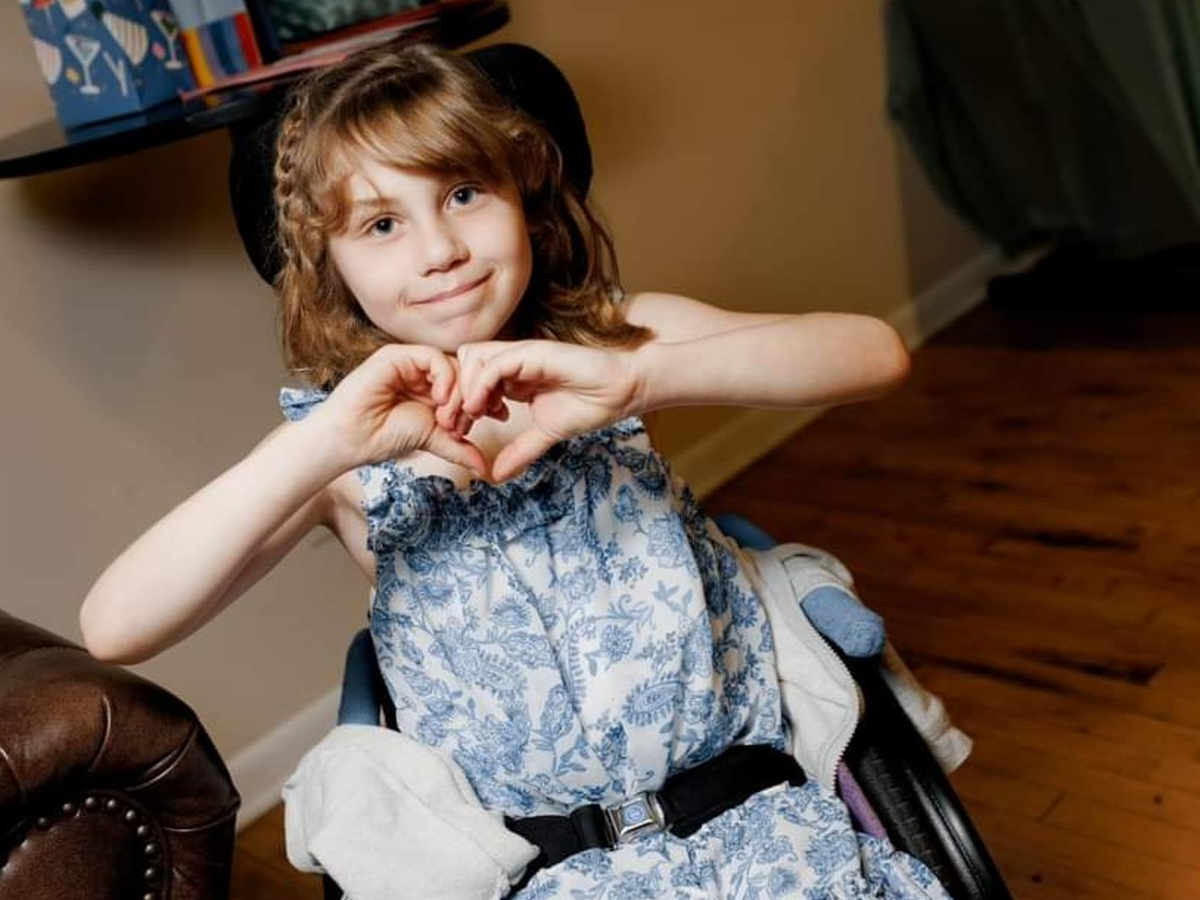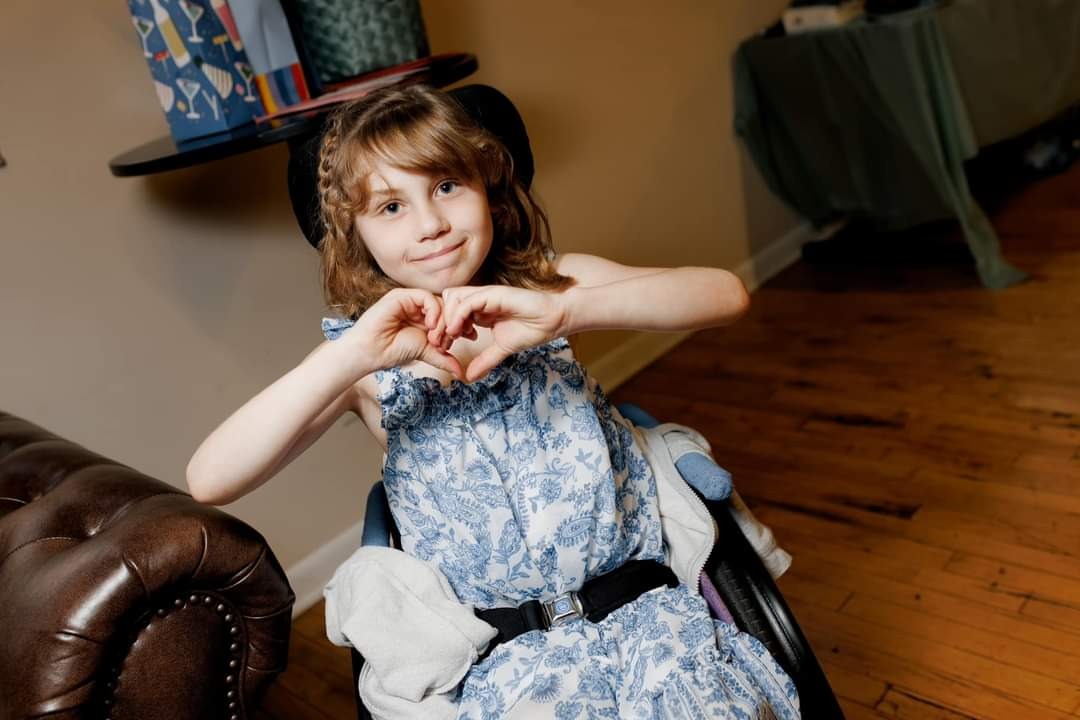Our Need:
Katja is a vibrant 9-year-old girl from Seattle, Washington, who has faced more medical challenges than most adults. Born with a complex congenital heart defect known as Truncus Arteriosus, she has undergone three open-heart surgeries. Now, she faces her most critical battle yet: a partial heart transplant at Duke University in North Carolina.
Katja's immune system will be severely compromised both before and after her surgery due to immunosuppressant medications and keeping her strong/healthy enough for bypass. Flying commercially poses significant risks of infection, which could jeopardize the success of her transplant and her life. A private charter flight is a medical necessity.
The cost of a private medical charter flight is substantial, estimated between $45,000 and $50,000 each way. We are seeking support to cover these expenses, ensuring Katja can safely travel to and from Duke University for her life-saving procedure.

Katja’s Story: The Heart We’re Still Building
Katja’s heart story began before she was ever placed in my arms. I received the news no pregnant woman wants to hear: Something is wrong with the baby.
She was born with a condition so rare most people never encounter it: Truncus Arteriosus. Her heart had just one vessel instead of two, just one valve trying to do the job of two. Within days of birth, she was taken to surgery. The team separated her circulation, added a conduit to link her heart to her lungs, and created a pathway for oxygen to flow the way it should. They stitched her back together and handed her to us—fragile and mended and beautiful.


And for a time, she did well. But her growing body demanded more from her repaired heart than it could give. By two years old, she needed a second open-heart surgery. Her tiny chest opened again, her anatomy rearranged once more. That surgery brought complications. Internal bleeding. Long nights. Watching her stats climb and fall. But she pulled through, again. Because that’s what Katja does—she pulls through.
It was during that second operation that she received an Ozaki valve—a handmade reconstruction of her aortic valve using tissue. We were told it was creative, elegant, and our best shot. And it was—until it wasn’t.
Not long after, Katja began dropping crayons, tripping over her own feet. She lost her ability to draw, to hold a spoon, to sit still. Her legs kicked without warning. Her words stuttered and slurred. At first, we hoped it was recovery. Then we feared something worse. After a battery of tests and a long process of elimination, we were told it was Post Pump Chorea—a rare neurological complication caused by time spent on bypass during surgery. Her brain had been cooled to protect her, but it had also changed something deep within her motor pathways.
We entered a new chapter: one of neurologists and physical therapists, of weighted utensils and strollers. It became normal to celebrate half-steps: a fork held steady, a sentence completed without a tremor. Katja was still herself—funny, fiercely independent, sharp as ever—but she was also trapped in a body that wouldn’t always listen.

Even so, she fought. And little by little, she improved.
But as she healed neurologically, her heart began to struggle again.
The signs were small at first. She tired more easily. She lost weight. Her appetite dipped. Her skin turned that quiet shade of gray that no parent of a heart child ever forgets. An echocardiogram confirmed what I had already known in my bones: the Ozaki repair was calcifying. The conduit was narrowing. Her left ventricle was enlarged. Her heart, again, could not keep up.
So we took her to Boston. On the plane, she looked out the window and whispered, “cotton candy clouds.” The wonder on her face, I'll never want to forget it.

In the summer of 2023, she underwent her third open-heart surgery. They removed the calcified Ozaki valve. They discovered and corrected a previously missed pulmonary artery blockage. They reconstructed both valves again, and her Ozaki had native tissue. This time, she woke up stronger. Smiling. Asking for food. Asking to go home.
We spent the next month in a haze of progress: first bath, first popsicle, first step without an IV pole. Her chest tubes came out. Her appetite returned. Her echocardiogram showed the best function she’d had in a long time.

But then, in the fall, the chorea returned.
The same tremors. The same involuntary motions. The same heartbreaking slide backward. She was placed in a wheelchair. And it brought back so much grief. It was a bitter pill to swallow, watching your child lose all function again.

We tried a medication typically used for Parkinson’s patients: carbidopa-levodopa. And within weeks, it changed everything. She was steadier. She could draw again. By winter, she progressed to a walker. Her strength returned. She gained weight. Her spirit bloomed. Her neurologists called it “remarkable.” I called it "Katja Strong."
For a while, it felt like we had turned a corner.
But in May, during what was supposed to be a routine approval in Boston for a deep brain stimulation surgery consult, everything shifted again.
Her cardiologist looked more intense than usual. He frowned. The measurements were worse—significantly. The heart was again failing the girl inside it. We didn’t have years. We didn’t even have many months.
For the fourth time in her short life, Katja needed a major cardiac intervention.
But this time, the answer wasn’t just another repair. It was something new—something barely a handful of children have received: a Partial Heart Transplant.
Unlike a full transplant, which replaces the entire heart, this surgery replaces the aortic and pulmonary roots with living donor tissue—valves that grow with the child. No permanent blood thinners. Fewer future surgeries. It was a blend of transplant and innovation, and it was exactly what Katja needed.
Duke University agreed to take her.
And now, we’re preparing to go.
But she can’t fly commercially. Not with immune suppression therapy after. Not with needing to protect her from illness before the surgery. Not with the risks. She will require private medical air transport across the country—a sealed space for a fragile girl with everything at stake. Help us get Katja from Seattle to North Carolina. Be a part of her story, help her remain Katja Strong.

How You Can Help
Your generous donation will directly fund:
* A private medical charter flight from Seattle to Duke Children's
* Return flight post-surgery when Katja is stable.
* Associated medical travel expenses including hotel, food and medical bills.
Join Us in Supporting Katja
Every contribution brings us closer to providing Katja with the safe transport she needs for her transplant. Your support can make a life-saving difference.
Follow Katja's Journey on her Blog



